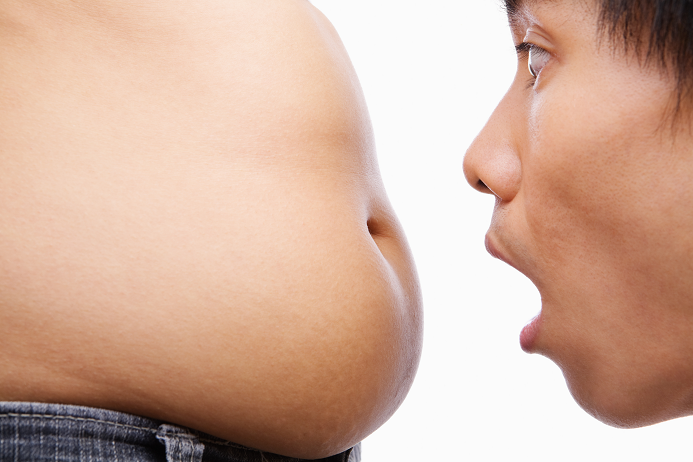It is widely known and accepted that sugar contributes significantly to weight gain. There are quite a few other reasons why we get that belly that is so despised by over-weight individuals. Understanding some of the mechanisms behind sugar causing weight gain can help us in our control over it.
The first and foremost is how the pancreas and adrenals respond to sugar when consumed. When we eat a high carb meal, glucose levels go up. Because glucose in large amounts is toxic, it causes the pancreas to raise insulin levels to try to get the glucose out of the blood stream and into the cells where it can be used. The adrenals also release cortisol in response to insulin. Both insulin and cortisol tell the body to increase fat deposition. The more this happens, and the greater the amount of glucose in the blood, the more the cells become resistant to insulin. The pancreas then has to work even harder to get the glucose (which is needed by the energy mechanisms) into the cells.
Fructose in the diet also causes the body to become resistant to a hormone called leptin. Leptin is responsible for helping the brain determine how much fat is stored (for use in emergency or famine situations). The fatter the cells get, the worse the mechanism responds and the brain, instead of seeing that you have ample fat and reducing the appetite, sends the message that you are starving and sets off cravings. Of course, then you eat more, and the fat cells get even fatter, worsening the situation.
Sugar doesn’t satisfy. You have receptors on your tongue that are called kokumi. Kokumi is a Japanese word for “mouthfulness”. Meaning, how satisfied your mouth, or tongue feels with food. It enhances the flavors of sweet, salty and savory (aka “umami”), but it is the fat in food that makes you truly satisfied. When we dropped fat from our diet, we were no longer getting satisfied, or feeling kokumi, so we turned to sweets to satisfy instead. Well, the sugar, by far, puts on more weight than fat ever did. Besides, we now know that eating fats (good fats), don’t make you fat. Sugar does. There are 3 vital components to slow down sugar response in the body (reducing insulin and cortisol): Fat, protein and fiber. The more those 3 things are in a meal, the slower sugar will enter the blood stream, and the less negative hormonal response. To help with weight, eat less sugar, and more protein, fiber and fat!
©2019 Holly A. Carling, O.M.D., L.Ac., Ph.D.







